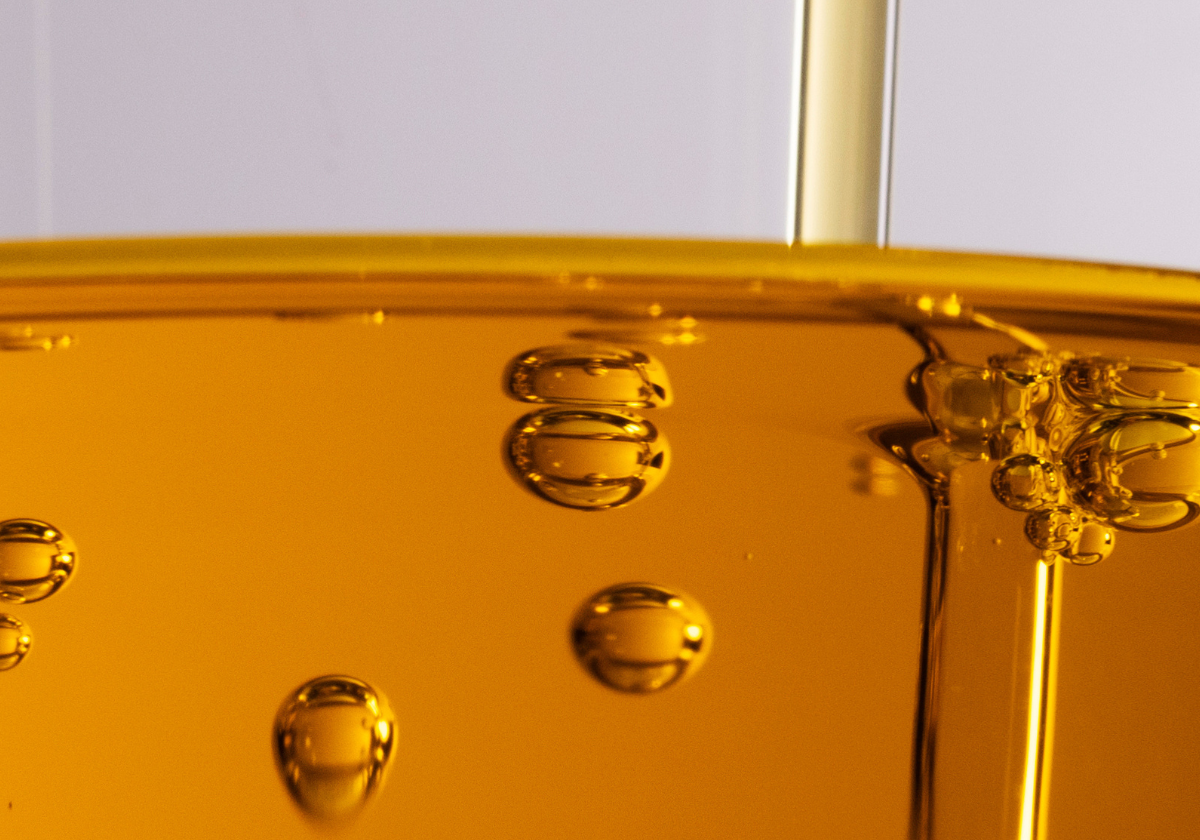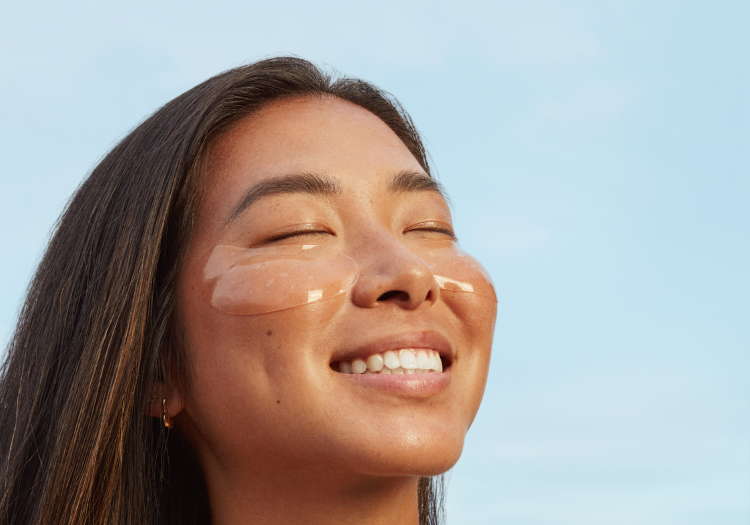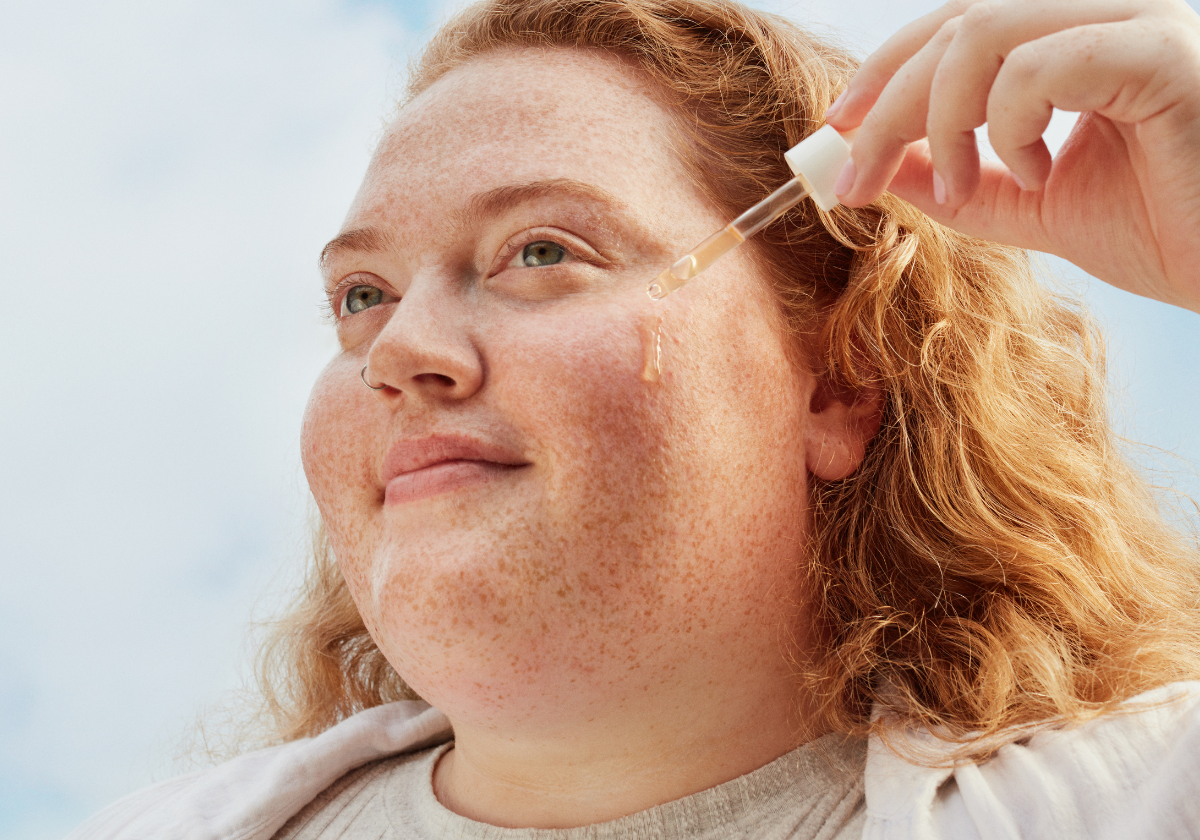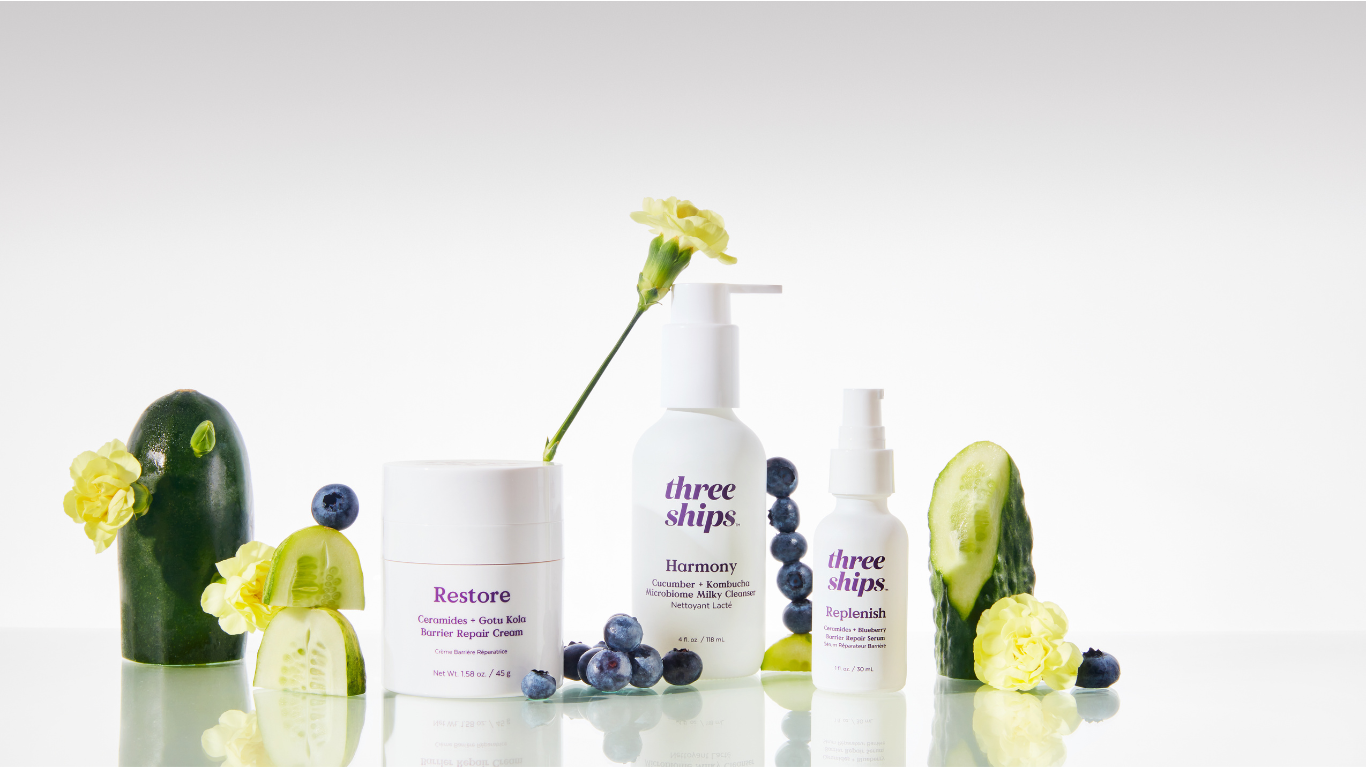Is Humidity Good For Skin?

As the weather changes, you’ve probably found that your skin changes too. The changes in seasons, hormones, and diet affect your skin. Have you ever had sudden breakouts when your skin is usually clear or experienced ultra-dry skin in the middle of the hot summer season? Keep scrolling to discover what you need to know about humidity and how it affects your skin.
What Is Humidity?
When the weather is humid, there is excess moisture (amount of water vapor) in the air. It is a natural part of the atmosphere that comes from the evaporation of large bodies of water.
Humidity is a part of the water cycle because water is continuously generated by evaporation and removed by condensation. Higher atmospheric temperatures hold more water vapor, which means higher humidity levels.
An example of this is tropical rainforest regions or places in the southern United States. Some people that live in warmer, humid climates with higher humidity levels, such as Miami or Houston, tend to struggle with acne, larger pores, and oily skin.
What Is Relative Humidity?
Relative humidity refers to the amount of water vapor in the air. This is measured against the amount of moisture the air is capable of holding. The measurement accurately determines which humidity levels are desirable for your skin, both indoors and outdoors. It is beneficial for indoor humidity measurements where a humidifier may be needed to balance the air in colder, dryer months.
How Does Humidity Affect Your Skin?
Both high and low humidity levels affect your skin. High humidity levels open the pores, causing the accumulation of dirt, oils, makeup, and bacteria. Excess humidity causes acne, clogged pores, blackheads, eczema, and other skin conditions to present themselves on the skin.
Low humidity levels do the opposite by drying out the skin and causing fine lines and dehydration. Here’s how:
Excessive Sweating
Humidity makes summertime unbearable in warmer climates. Warm temperatures feel excessively warmer when the humidity is high, making you sweat even more than usual. If you wear makeup and sweat, this causes the perfect environment for clogged pores and congested skin.
Acne Breakouts
Excessive sweating causes clogged pores, acne breakouts, and excessive sebum production. Redness and irritation may occur on your skin as well.
Anhidrosis
Anhidrosis is a skin condition that causes the inability to sweat normally due to high humidity levels and improper functioning of the sweat glands.
Heat Rash
Excessive perspiration causes blockages to the sweat ducts. The excess heat and sweat lead to heat rashes, which are small red bumps that are itchy and uncomfortable.
How Does Low Humidity Affect Your Skin?
Low humidity takes its toll on your skin in the following ways:
Dry Skin
Skin needs moisture to remain soft and supple. Low humidity levels and colder temperatures drain your skin's vital hydration and moisture. The natural oils in your skin become depleted, causing dryness, flaking, and possible skin cracking.
Dead Skin Cell Buildup
Dead skin cells do not slough themselves off properly when your skin becomes dry. This happens when the cells accumulate on the surface of the skin, blocking the beneficial moisture from your skincare products.
Skin Allergies
Low humidity causes skin allergies to pronounce themselves, causing excessive dryness, exaggerated allergy symptoms, and worsened asthma symptoms. The skin around your eyes and nose may become drier and more irritated due to allergens, irritated nasal passages, and sinus infections.
Interferes with Healthy Aging
Dry skin is prone to deeper fine lines and wrinkles, and these lines cause the skin to appear older, duller, and less elastic.
Get To Know Your Skin
Get to know your skin, so you know how to treat its behavior. Do you live in a warm, humid region? Are you located in a drier area? Is your skin oily or dry? Are you prone to acne, clogged pores, or fine lines and flaking? These are questions you must ask yourself.
Understanding your skin type helps you determine what kind of skincare products you must use to keep your skin happy and healthy.
Whether you live in or travel to a place that has humid or dry weather, you must treat your skin with care to keep it clean and clear. Here’s what to do:
How Do You Treat Your Skin In Humid Weather?
- Keep It Clean & Utilize acids
- Hydrate lighter
- Don’t Touch Your Face
- Exfoliate Your Skin
- Give Yourself Weekly Facials
- Remain Hydrated
- Use A Humidifier
1. Keep It Clean & Utilize Acids
Alpha-hydroxy, salicylic acid, and beta-hydroxy acids are excellent chemical exfoliants that gently buff the epidermis and unclog the pores. Use cleansers that include these chemical exfoliants to support the skin’s microbiome in humid weather. Keep your skin clean by cleansing twice per day.
Our Refresh Papaya + Salicylic Acid Cleanser is excellent for addressing signs of acne and helping fight blemishes.
2. Use A Lighter Moisturizer
Since those living in humid regions tend to have oilier skin, it is essential to lighten up on the moisturizing cream. Use lighter oils, serum, and water-based sunscreens that absorb quickly into the skin to prevent clogged pores and excessively oily skin.
3. Don’t Touch Your Face
Your skin perspires more in warm, humid climates. Touching your face spreads bacteria from your hands to your complexion, providing the perfect breeding ground for breakouts. Keep your hands clean and away from your skin.
4. Exfoliate Your Skin
Use exfoliating cleansers and body washes that contain exfoliants such as AHAs and BHAs. These keep your skin smooth and pores clean and clear of debris, preventing excess sebum and acne breakouts.
5. Give Yourself A Facial
Weekly at-home facials help keep your pores unclogged and your skin clear and smooth. Clay face masks work by absorbing oils and impurities in the skin.
Our Detox Green Tea Antioxidant Clay Mask detoxes your pores by vacuuming out impurities deeply embedded in your skin. French green clay and white kaolin clay work together with green tea extract to effectively decrease collagen loss while removing impurities.
6. Stay Hydrated
Hydration is essential, especially in warmer climates where you sweat. Drinking plenty of water, eating a balanced diet, and following the proper skin care routine helps clear your skin in humid climates.
7. Use A Humidifier
A humidifier helps to balance moisture in the air in your home. A controlled environment allows you to balance your skin as well. Humidifiers are beneficial during the winter months when indoor heaters are used more often.
They work by adding moisture to the air, lessening your chances for imbalanced skin conditions such as dry and flaking skin. People living in drier climates, such as New York City, often use humidifiers year-round.
Is High Humidity Good For Your Skin?
Your skin requires balanced humidity levels to remain healthy. As both high and low humidity levels affect the skin, they can be harsh and disruptive to your skin’s natural state.
Excessive humidity causes breakouts, sweating, clogged pores, and heat rash. That’s why dermatologists recommend adjusting the indoor humidity levels between 30 and 50, using a dehumidifier or humidifier.
How Do You Treat Your Skin in Low Humidity?
- Use A Rich Moisturizer
- Hydrate With Water
- Exfoliate Your Skin
- Bundle Up In Colder Temps
1. Use A Rich Moisturizer
Prevent your skin from becoming dry and flaky by using a rich moisturizer on your skin. Hydrated skin appears more supple, smooth, and healthy. Hyaluronic acid and vitamin E are excellent deep penetrating ingredients to look for in a moisturizer for dry skin.
Apply the moisturizer directly to your damp skin after showering to lock in moisture. Choose a moisturizer, like our Radiance Grape Stem Cell + Squalane Day Cream, rich in vitamins, minerals, essential oils, and botanicals to help support dry skin,
2. Hydrate With Water
Drinking water helps to hydrate your skin from the inside out. Pair proper hydration with a healthy diet, and you’ll be on the right path to well-hydrated skin.
3. Add Oils to the Routine
Oils, like Jojoba oil, are meant to absorb quickly, minimize the appearance of pores and reduce excess oil. Opt for camellia oil and vitamin E, found in our Glow 49% Jojoba Oil Serum, for extra hydration and a supple, dewy finish.
4. Bundle Up
Cold weather is harsh on your skin. Bundle up when going outdoors by wearing warm, protective clothing. Hats, scarves, and gloves help protect your skin from the cold wind and temperatures.
What Are the Skin Benefits of a Humid Environment?
While there are many disadvantages for your skin due to humid weather, there are also some advantages. These benefits include:
Increased Cellular Turnover
Cellular turnover increases with high humidity levels. When your skin is healthy and hydrated, cellular turnover occurs naturally as it should, resulting in brighter skin.
Hydration
High humidity levels in the air mean more water and hydration delivered to your skin, but if you have oily skin, this may cause breakouts. Balance is essential when it comes to humidity levels and your skin.
Bottom Line
Whether high or low, humidity affects your skin, with many benefits and drawbacks. High humidity may cause breakouts, excess sebum production, clogged pores, and other skin conditions. It is vital to keep your skin healthy by eating a well-balanced diet, staying hydrated, using quality ingredients formulated for your skin type, and maintaining balanced humidity levels in your home.
Three Ships Beauty offers skincare you can trust with transparently designed formulas. Every ingredient is 100 percent plant-derived and clinically proven to provide effective results you’ll love.
Whether your skin is oily, dry, acne-prone, or experiencing the signs of premature aging, we have a product for you. We are proud to be Women-Owned Certified, and every product is cruelty-free, vegan-friendly, and 100% natural plant-derived ingredients.
After all, “less” never felt so “more.”
Sources:
Ambient humidity and the skin: the impact of air humidity in healthy and diseased states | PubMed
How to safely exfoliate at home | American Academy of Dermatology
How to prevent and treat dry, chapped lips | American Academy of Dermatology
- Tags: rec1:refresh-papaya-salicylic-acid-cleanser rec2:detox-green-tea-antioxidant-clay-mask Skin Education
0 comments





